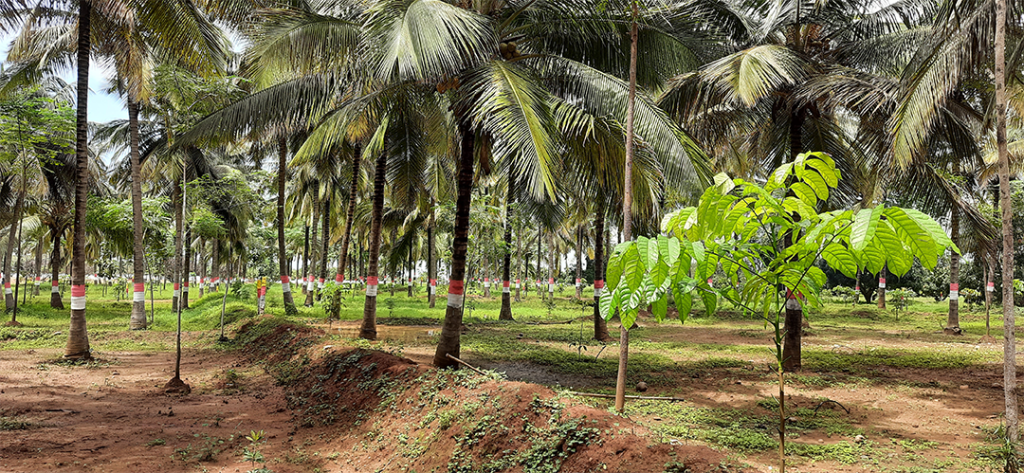
Today, many investors are seeking alternative opportunities that offer both financial returns and positive social or environmental impact. One such opportunity that has garnered increasing attention in recent years is investing in managed farmland. If you are in Bangalore and looking for the best managed farmland near me for investment purposes, then Sharanya Farm will be the best option for you. With its potential for stable returns, diversification benefits, and alignment with sustainability goals, investing in managed farmland offers a compelling investment thesis. In this blog, we’ll explore the advantages of investing in managed farmland and why it’s worth considering for your investment portfolio.
Stable and Predictable Returns
One of the primary advantages of investing in managed farmland is its potential to generate stable and predictable returns over the long term. Unlike other asset classes that may be subject to volatility and market fluctuations, farmland typically provides steady income streams derived from crop yields or rental income from leasing the land to farmers. Agricultural commodities, such as grains, fruits, and vegetables, tend to have consistent demand regardless of economic conditions, making farmland investments relatively resilient to market volatility.
Additionally, farmland investments have historically exhibited a low correlation with traditional asset classes, such as stocks and bonds, providing diversification benefits to investors’ portfolios. This can help mitigate overall portfolio risk and enhance risk-adjusted returns, particularly during periods of market uncertainty or downturns.
Tangible Asset with Great Value
Farmland is a tangible asset with high value, making it an attractive investment option for those seeking to preserve wealth and hedge against inflation. Unlike financial assets that may be subject to depreciation or loss of value over time, farmland retains its inherent worth as productive agricultural land. Furthermore, the finite supply of arable land coupled with increasing global demand for food and agricultural products can contribute to the appreciation of farmland values over the long term.
Investing in managed farmland allows investors to gain exposure to this tangible asset class while also contributing to the preservation and stewardship of agricultural land for future generations. By supporting sustainable farming practices and land management techniques, investors can play a role in promoting environmental conservation and responsible land use.
Diversification Benefits and Risk Mitigation
Farmland investments offer diversification benefits that can help reduce overall portfolio risk and enhance resilience to market fluctuations. The low correlation between farmland returns and traditional asset classes, such as stocks and bonds, means that farmland investments can serve as a valuable diversification tool within a well-balanced investment portfolio.
Moreover, farmland investments are less susceptible to factors such as interest rate movements, geopolitical tensions, or corporate earnings reports that may impact other asset classes. This can provide a degree of stability and predictability to investors’ overall investment returns, particularly during periods of economic uncertainty or market volatility.
Potential for Capital Appreciation
In addition to providing steady income streams through rental income or crop yields, farmland investments also offer the potential for capital appreciation over the long term. As global population growth and increasing urbanisation place greater pressure on limited arable land resources, the value of productive farmland may appreciate over time.
Moreover, technological advancements in agriculture, such as precision farming techniques, genetic engineering, and data analytics, are helping to increase crop yields and enhance the productivity of farmland. This can contribute to the long-term value appreciation of farmland investments, providing investors with opportunities for capital growth in addition to income generation.
Environmental and Social Impact
Investing in managed farmland can have a positive environmental and social impact by supporting sustainable farming practices, promoting land conservation, and fostering rural development. By investing in farmland managed using environmentally friendly techniques, such as organic farming, agroforestry, or regenerative agriculture, investors can contribute to soil health, water conservation, and biodiversity preservation.
Furthermore, investing in managed farmland can support local economies and rural communities by providing employment opportunities, infrastructure development, and economic diversification. By supporting responsible land stewardship and sustainable agricultural practices, investors can play a role in addressing pressing environmental challenges while also generating financial returns.
Summary
Investing in managed farmland offers a range of advantages, including stable and predictable returns, diversification benefits, potential for capital appreciation, and positive environmental and social impact. By incorporating farmland investments into their portfolios, investors can access a unique asset class that offers both financial returns and alignment with sustainability goals. Sharanya Farm is a managed farmland near Mysore Road where you can find various opportunities for wise investment in land. As the global population continues to grow and demand for food and agricultural products increases, farmland investments are likely to remain a compelling option for investors seeking both financial prosperity and positive societal impact.